
6 Novels Every Actor Needs to Read
Engage the Creative Imagination
Contributed with intelligence by staff writer Russell Sperberg
Getting lost in a story is imperative for every artist. Creativity is a muscle that needs to be exercised, and reading develops mental acuity by allowing you to fantasize and develop your imagination.
Similar to daydreaming, the brain does not differentiate between what you feel while reading a story and living the story in reality. Therefore, allowing your mind to float into the author’s world grants you the opportunity to delve into abstract human experiences.
It’s important to be constantly learning. At TK Studio, we get questions all the time about what we should be reading. Here is a list of Terry Knickerbocker’s recommendations to get started on the wonderful world of novels every Meisner actor needs.
To the Lighthouse – Virginia Woolf
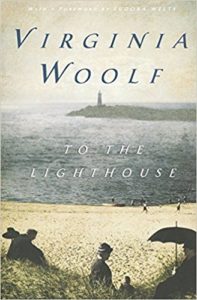
Woolf’s account of a family’s trips to Scotland isn’t so much about story as it is about the experience of the story. Ten percent of the book is dialogue or plot; the rest is characters’ internal monologues. It can be dizzying to watch the narration move freely from character to character, but it’s also exhilarating. In its own roundabout way, the book is a testament to the passage of time and the conflicting truths people can believe in. Want to dig into point of view work? This is a great place to go.
Lolita – Vladimir Nabokov
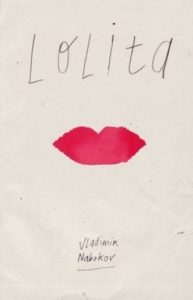
Lolita is not just “that book about a pedophile.” Nabokov was a genius at structure, and he considered Lolita his favorite work because it was his greatest challenge. Needless to say, he rises to the occasion. He makes Humbert Humbert, the vain, witty, super-duper-unreliable narrator, understandable. As Nabokov dazzles you with wordplay, he slyly digs into your brain until you sympathize with the creep Humbert. As with all good art, you actually see the world through someone else’s eyes. Isn’t that all that we are trying to do as actors?
Crime and Punishment – Fyodor Dostoevsky
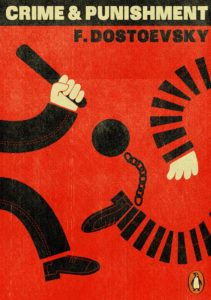
Dostoevsky wrote this epic to rail against radicalism. Raskolnikov, an intelligent student, kills an old pawnbroker because he thinks he’s mentally strong enough to do it. After doing the deed, he realizes he is, in fact, not. The titular punishment turns out be a psychic one – Raskolnikov’s mind unravels, and he’s wrecked by grief and guilt. This psychological thriller was way ahead of its time and has much to say about how individuals operate in the larger world.
Pride and Prejudice – Jane Austen
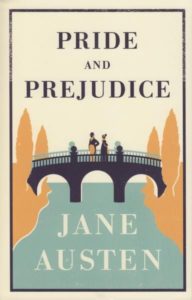
Dismiss her work as chick-lit at your own peril. Beneath the tea and dances and handsome soldiers lies a fiery, sharp spirit. Austen always skewers Georgian English society while unearthing great pathos. Pride and Prejudice concerns romance and the preconceptions we have about others. In the tale of Lizzie Bennett and Mr. Fitzwilliam Darcy, Austen tells an intimate story that is just as emotionally epic as anything her contemporaries Dostoevsky and Tolstoy were writing.
Great Expectations – Charles Dickens
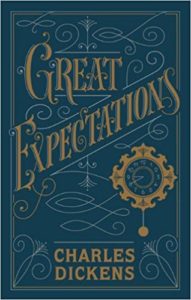
Everything about Dickens’s penultimate book is extreme. Pip, a young orphan, grows up and encounters every level of society, from cold poverty to lush wealth. Along the way, he meets a colorful cast of characters, including the eccentric, perennial bride Miss Havisham. The story ranges from wild comedy to brash adventure (It’s one of the more entertaining “literary” novels you’ll ever read). Dickens portrays the whole of humanity in these pages, spiritedly shows the human triumph of good over evil, and has an amazing attention to detail.
Adventures of Huckleberry Finn – Mark Twain
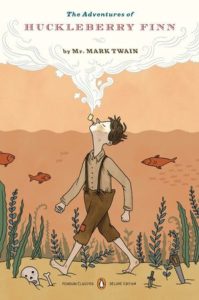
Mark Twain could have easily taken the fun-loving characters of Tom Sawyer and made a popular sequel. But instead, he turns the characters on their heads, creating a more naturalistic novel that tackles bigotry and racism with funny, frustrating, and heartbreaking results. Huck and the escaped slave Jim travel down the Mississippi River and encounter all kinds of American lives. The book is a scathing satire, but it’s also a powerful, necessary account of kindness and companionship something all actors, and frankly the world, could use a little more of right now.
Want to learn even more?
Terry Knickerbocker Studio offers comprehensive Two-Year Conservatory rooted in the Meisner technique, in a state of the art facility in Brooklyn, New York.
Interview Today for the Fall Conservatory or the Summer Intensive
Fill out an Application Here